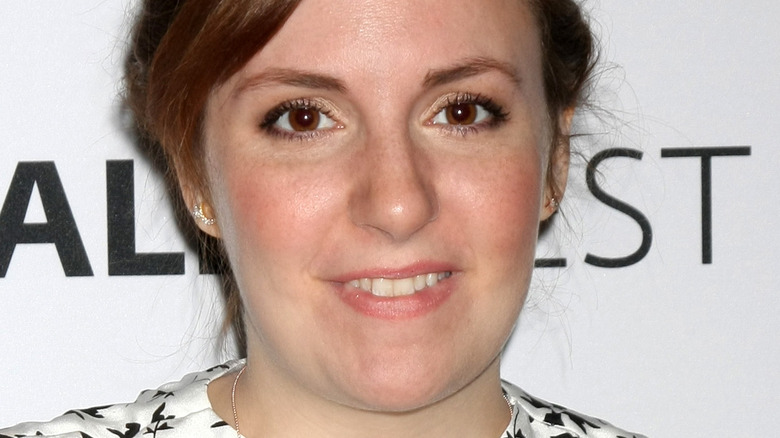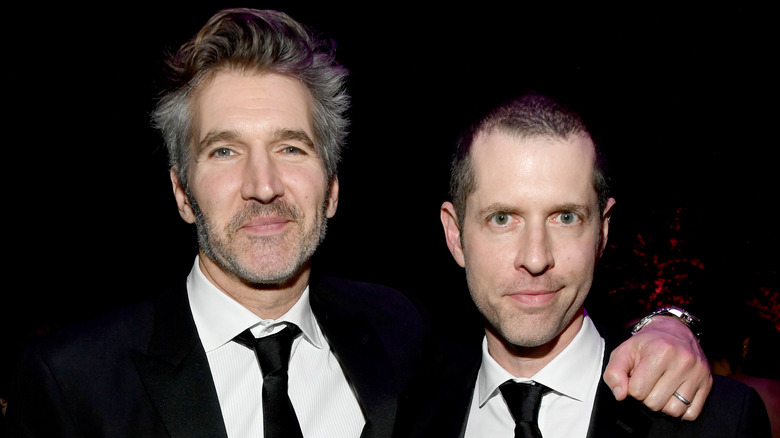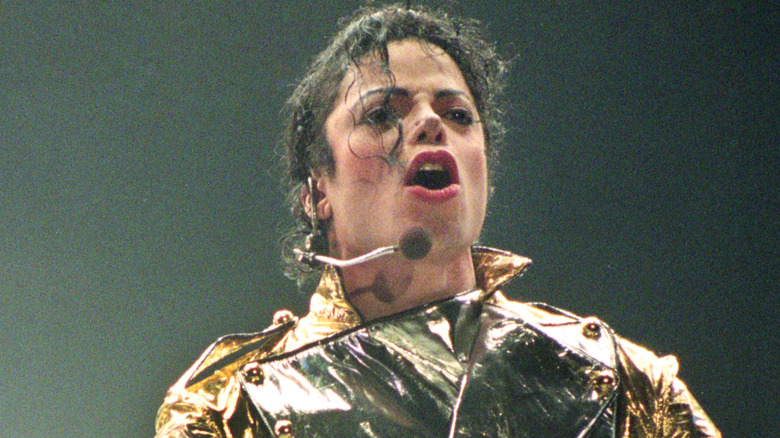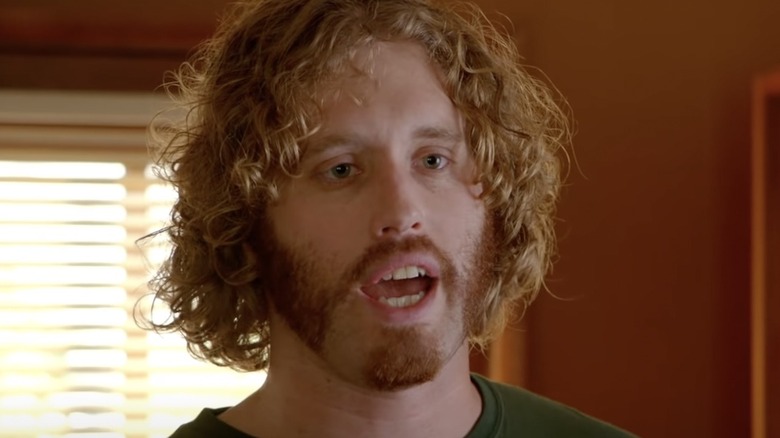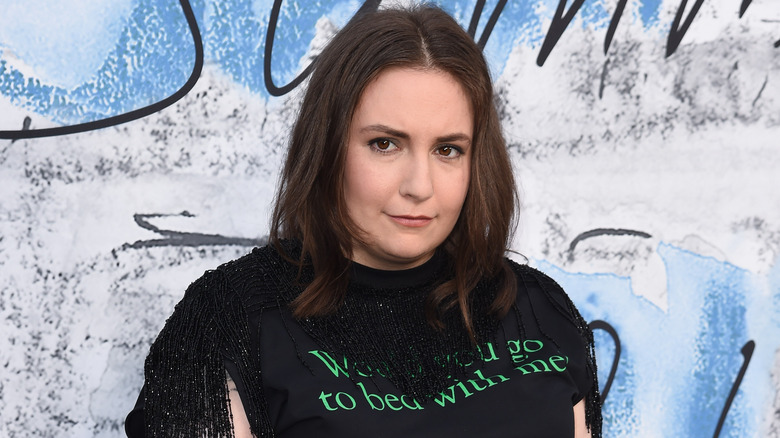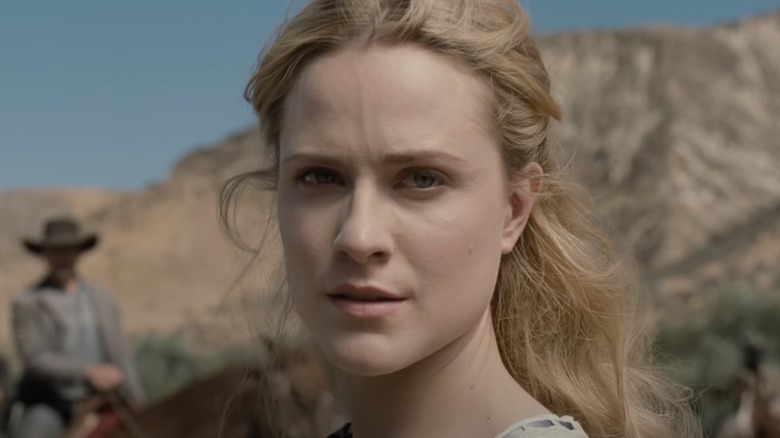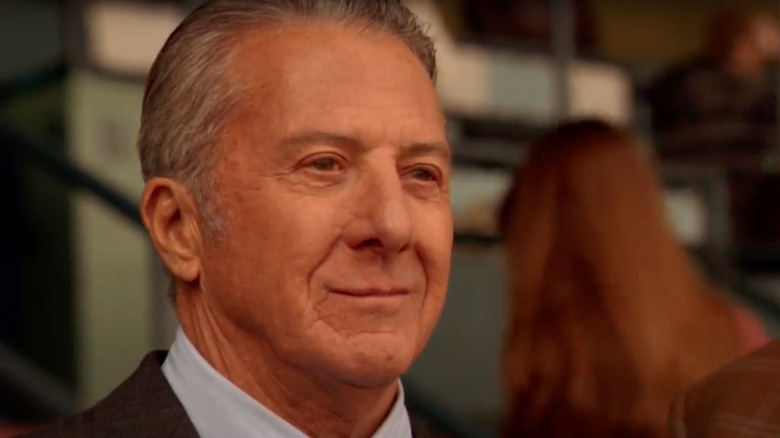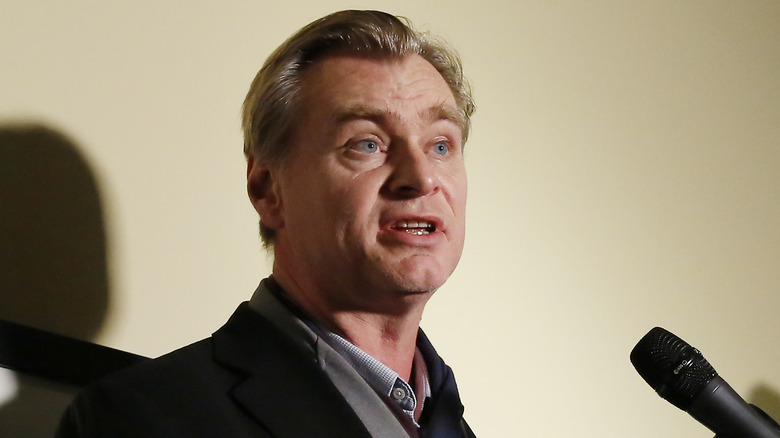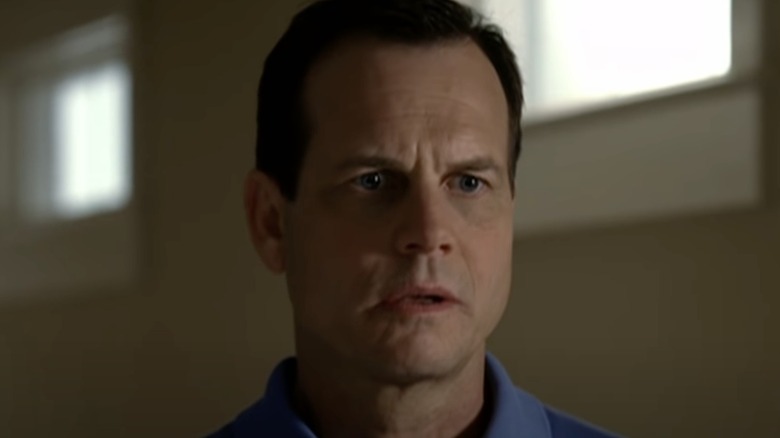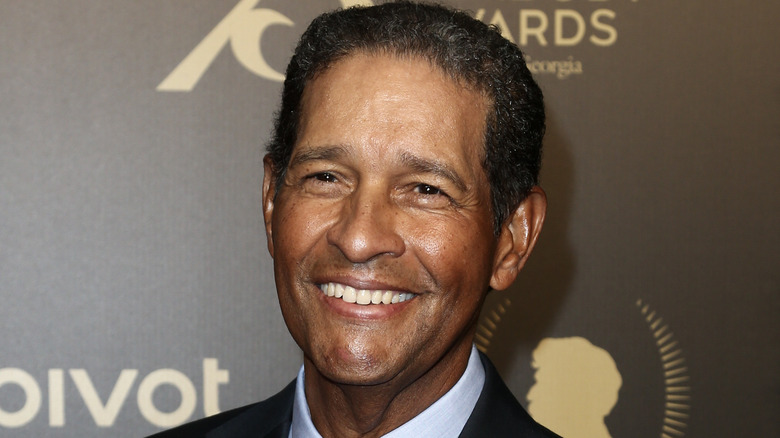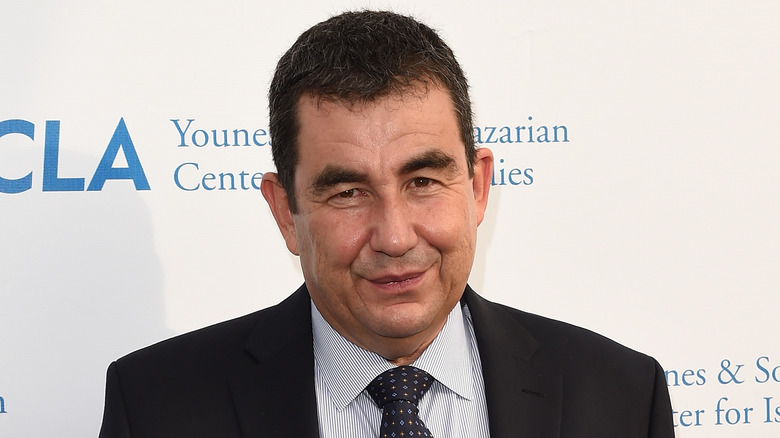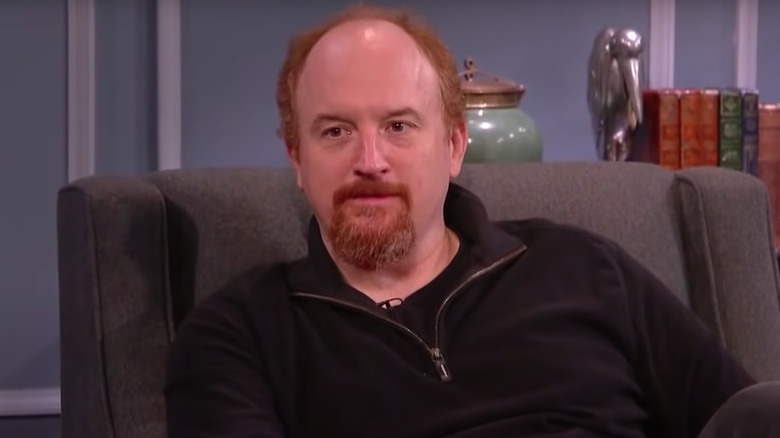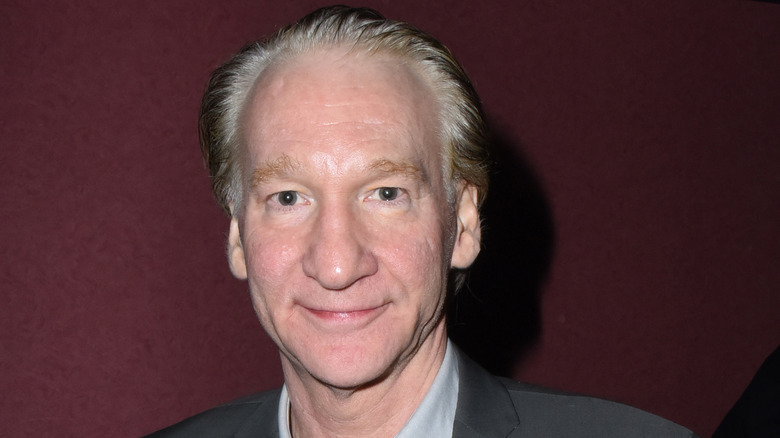HBO's Biggest Scandals Ever
It's not television, according to the long-used and familiar advertising slogan, it's HBO. Okay, but it is television — just really high-quality (for the most part), artistically uncompromising and boundary-pushing, provocative, pioneering television at the cost of a few extra bucks on the monthly cable bill. HBO, or "Home Box Office," was something of a novelty when it launched in the early 1970s — a place where subscribers could find programming above and beyond the fare offered by the broadcast networks, recent theatrical movies uncut and without commercials along with sports and live events beamed into one's comfortable living room.
As the years wore on, HBO became a destination for some of most acclaimed and memorable shows around (and an Emmy Awards magnet), showcasing "The Sopranos," "Six Feet Under," "Oz," "Game of Thrones," "Curb Your Enthusiasm," "Sex and the City," "Deadwood," "Girls," and more. But with those sometimes controversial shows come behind-the-scenes scandals as dramatic and tawdry as something one might find in an HBO series. Here are all the most salacious scandals faced by HBO.
HBO viewers didn't want a show about slavery from the creators of Game of Thrones
As the producers of the fantasy epic "Game of Thrones," David Benioff (above left) and D.B. Weiss (above right) brought loads of attention and Emmy Awards to HBO. With that series racing toward the end of its run, Benioff and Weiss looked ahead to their next projects. In July 2017, according to Vulture, HBO ordered a drama series from Benioff and Weiss called "Confederate." The setting: the contemporary United States just before a third Civil War, and in an alternate reality where slavery endured. The producers and HBO were met with immediate distaste and resistance for the show, with actor David Harewood predicting that many Black actors would refuse to appear in "Confederate," and #OscarsSoWhite originator April Reign organizing a #NoConfederate drive on Twitter (per Vulture). HBO issued a statement (via The Hollywood Reporter) addressing the public's concerns. "We have great respect for the dialogue and concern being expressed around 'Confederate,'" it read. "The project is currently in its infancy so we hope that people will reserve judgment until there is something to see."
Ultimately, there was never anything to see. With still no significant development on "Confederate" by February 2019, HBO president Casey Bloys told TVLine that the continued nonexistence of the show was because Benioff and Weiss were too busy, what with wrapping up "Game of Thrones" and "that they were offered three movies" in the "Star Wars" canon.
Leaving Neverland reopened the Michael Jackson child abuse scandal
In 2019, HBO broadcast "Leaving Neverland," a four-hour documentary that detailed in explicit, graphic detail, allegations of persistent sexual and emotional abuse against Michael Jackson. The documentary centers on Jackson accusers Wade Robson and James Safechuck, who allege the pop star abused them when they were teenagers. While claims of Jackson's abuse — and legal issues surrounding them — had been public knowledge for years the content presented in "Leaving Neverland" led to decisive change in how millions viewed Jackson and consumed his music. Several major radio broadcasters around the world banned or removed Jackson songs from playlists, and album sales and streaming figures dropped heavily. King of Pop memorabilia was removed from the Children's Museum of Indianapolis, and Jackson's episode of "The Simpsons" was taken out of circulation.
As "Leaving Neverland" premiered at the 2019 Sundance Film Festival, the estate of Michael Jackson slammed it in a statement. "This is yet another lurid production in an outrageous and pathetic attempt to exploit and cash in on Michael Jackson," it read (via E!). After the film unspooled, the estate released another missive (via Deadline), calling the documentary "tabloid character assassination" and based "solely on the word of two perjurers."
Jackson's family then successfully sued HBO, according to Variety, not for slander or presenting false information, but because by airing it, the network "violated a 27-year-old non-disparagement clause" in a contract it approved in 1992 when it agreed to air a Jackson concert film.
If you or someone you know may be the victim of child abuse, please contact the Childhelp National Child Abuse Hotline at 1-800-4-A-Child (1-800-422-4453) or contact their live chat services.
T.J. Miller's controversial exit from HBO's Silicon Valley
Playing opportunistic leech Erlich Bachman, freewheeling stand-up comedian T.J. Miller was part of the original cast of "Silicon Valley," HBO's scathing satire of the Northern California tech and software industry. At the end of the show's fourth season, Bachman flew to Asia and was tricked into living in a permanently drugged-out state in an opium den. That dramatic plot point was also how "Silicon Valley" producers got rid of Miller, with whom they'd have been having conflicts for some time.
"It was kind of becoming clear that he didn't want to do the show anymore," co-creator Mike Judge told The Hollywood Reporter. For example, the actor reportedly often showed up to tapings or table reads late, unprepared, or sometimes not at all. "It's not fun to work with someone who doesn't want to be there," Judge told THR in a separate interview.
Miller remembered things a little differently. Speaking to the same outlet, he likened his "Silicon Valley" exit to "a breakup" and claimed the show initially wanted to reduce his appearances from 10 episodes a season to as few as three, which was fine by him, because he was so busy with other opportunities, he was ready to leave the show altogether.
HBO's Girls was a nonstop scandal machine
"Girls" was certainly one of the most talked about new shows of 2012. Created by series lead Lena Dunham, the show concerned four twenty-something women living in New York, trying to get their messy professional and social lives on track, sort of like "Sex and the City" if the characters had no money, no job prospects, terrible boyfriends, and talked about themselves all the time.
Mother Jones found the show "unstoppably irritating" for its "First World problems," while other critics (per NPR) were concerned that a show purporting to be the voice of the millennial generation didn't include any people of color. Later on in the show's run, "Girls" generated a lot of ink over its frank and startling depictions of sexuality. Vulture wondered if an unsettling, second-season encounter between characters Adam (Adam Driver) and Natalia (Shiri Appleby) constituted sexual assault.
In addition, there were backstage issues on "Girls." Early in Season 3, according to Page Six, Christopher Abbott (Charlie) suddenly left the series, because, as a source said, he was "at odds with Lena" and that he "didn't like the direction things are going in." Around the same time, Dunham overhauled her writing staff.
If you or anyone you know has been a victim of sexual assault, help is available. Visit the Rape, Abuse & Incest National Network website or contact RAINN's National Helpline at 1-800-656-HOPE (4673).
Were elephants mistreated on the set of HBO's Westworld?
Based on a movie written by "Jurassic Park" novelist Michael Crichton, HBO's "Westworld" imagines a future where the wealthy can attend immersive theme parks staffed by hyper-realistic humanoid robots who serve their every whim. Everything in the Westworld park is fake, and there's a lot of CGI required to make "Westworld" come to life, and yet producers of the series opted to use real elephants for a Season 2 episode in 2018.
According to PETA, one of two elephants employed was named Tai, and was loaned out to the production by an animal casting company called Have Trunk Will Travel, which has come under scrutiny in the past for its aggressive if not allegedly abusive treatment of elephants, including hitting, poking with a bullhook, and the use of electric shock. "In light of the egregious cruelty and human health risks as well as the public's growing opposition to the use of animals for entertainment ... we're urging HBO to commit to not using any wild animals in future episodes or other series," PETA official Lauren Thomasson wrote in an open letter to HBO (via The Hollywood Reporter).
For its part, HBO released a statement, assuring PETA and the public that animals used on HBO shows "are treated with the utmost care and respect for their health, safety, and well-being."
Three horses died on the set of HBO's Luck
A new show created by David Milch was bound to be a major event at HBO. He'd brought the acclaimed revisionist western "Deadwood" to the channel, and in 2011 he unveiled "Luck," a series about the denizens of a horse track. "Heat" director Michael Mann produced and helmed the first episode of the show, which starred Dustin Hoffman and Nick Nolte, and the show earned critical raves. HBO ordered a second season just days after the series debut, but then weeks later, cancelled the whole thing. The shocking reason: The network didn't want any more horses to die in the production of "Luck."
During the filming of a racing sequence in the pilot, according to PETA, one horse fell and broke a leg, and was soon after euthanized. Another horse had to be put down in the filming of a subsequent installment, and finally, a third animal suffered a fatally broken neck and injuries when it fell while being guided to a stable by handlers, according to Forbes. "It is with heartbreak that executive producers David Milch and Michael Mann, together with HBO have decided to cease all future production on the series 'Luck,'" the channel said in a statement (via HuffPost). "While we maintained the highest safety standards possible, accidents unfortunately happen and it is impossible to guarantee they won't in the future."
HBO Max became the home to major movies, and directors weren't happy about it
In December 2020, WarnerMedia announced (via The Verge) that many of its most significant 2021 movies would debut in movie theaters and on HBO Max, its streaming service branded after HBO. Among the high-profile films that subscribers could watch at home: "Godzilla vs. Kong," "Dune," and "The Matrix 4." Warner executive Ann Sarnoff explained that the shutdown of movie theaters to limit the spread of the COVID-19 virus in 2020 affected the way the company operated, and that home release in the coming year (many of which had already been delayed) was necessary, as "most theaters in the U.S. will likely operate at reduced capacity."
According to MovieWeb, Warner made the announcement without letting filmmakers know that their works would appear on much smaller screens than they'd intended, and even the idea of that upset major Hollywood directors. "It's the type of disrespect that you hear about in the history of show business," Judd Apatow said at a Variety event. "But to do that to just every single person that you work with is really somewhat stunning." Speaking with The Hollywood Reporter, director Christopher Nolan was a bit more blunt towards HBO Max: "Some of our industry's biggest filmmakers and most important movie stars went to bed the night before thinking they were working for the greatest movie studio and woke up to find out they were working for the worst streaming service."
HBO's Big Love brought big scandal with it
The 2006 to 2011 series "Big Love" was a family drama, but since it aired on HBO there was a twist. It was the story of a man (Bill Paxton), his wife (Jeanne Tripplehorn), plus his other wife (Chloë Sevigny), and his other other wife (Ginnifer Goodwin), and all the kids they had between them as they lived their lives as part of a fundamentalist Mormon community in present-day Utah. Neither traditionalist religious sects nor polygamy had been explored in a serious or curious way on TV before "Big Love," and the series earned a slew of awards, including an Emmy nomination for Outstanding Drama Series.
On more than one occasion, the show upset members of the real-life Church of Latter Day Saints (colloquially referred to as Mormons). According to NPR, LDS members thought the show didn't do a good enough job to differentiate between plural marriage-encouraging, fundamentalist groups, and the mainstream LDS church, which does not support polygamy.
In 2009, "Big Love" crossed the line for many LDS adherents when it depicted one of the church's sacred and secret rituals. The "endowment ceremony" is performed in white robes and uses sacred language, and only other church members may witness it, and it's done before a Mormon enters a marriage. LDS churchgoers called for HBO to not air the episode, but the network went ahead with a scheduled airing as well as reruns, although it did release an apology.
When HBO's Real Sports stopped being polite, and started getting real
HBO airs a new installment of "Real Sports with Bryant Gumbel" just about every month or so, applying to sports and the issues surrounding them with the kind of curious, intrepid, hard-hitting, and long-form reporting usually reserved for politics and social issues and on shows like "60 Minutes." According to the show's website, no program of this kind has ever won more awards, as "Real Sports" producers have taken home 33 Sports Emmys.
About a decade into its long run on HBO, "Real Sports" picked a fight with one of its favorite topics: the National Football League. In an episode that aired in August 2006, Gumbel criticized outgoing NFL commissioner Paul Tagliabue and NFL Players Association president Gene Upshaw, wanting new commissioner Roger Goodell to seemingly be aware of what he perceived to be a union head that stood down to the league as a matter of course. "Before he cleans out his office, have Paul Tagliabue show you where he keeps Gene Upshaw's leash," Gumbel said (via the Orlando Sentinel). "By making the docile head of the players union his personal pet, your predecessor has kept the peace without giving players the kind of guarantees other pros take for granted. Try to make sure no one competent ever replaces Upshaw on your watch."
In response, Tagliabue didn't really take the bait, but called Gumbel's comments "as uninformed as anything I've read or heard in a long, long time."
HBO almost adapted a journalist's book, until the assault charges came in
In 2013, Ari Shavit, a columnist for the Israel's prominent Haaretz newspaper, published "My Promised Land: The Triumph and Tragedy of Israel," a nonfiction title which aimed to tell the modern history of the Middle Eastern nation through intimate sources including diary entries, letters, and interviews. It sold well and won several awards, including the National Jewish Book Award, and in 2015 HBO bought the adaptation rights and started pre-production on a documentary film based on "My Promised Land," according to Deadline. "The book left me awestruck and as moved as I've been maybe ever," HBO chairman Richard Plepler said at an industry conference, adding that he thought the eventual film could "reach millions of people."
Complicating the making of the film: In 2016, according to Jewish Currents, Shavit was accused of sexual assault by an Israeli journalist, and then of more improper behavior by a staff member of an Israel advocacy organization. Shavit apologized, but lost his job at Haaretz. Before HBO could make a decision on whether or not the film version of "My Promised Land" was still on, two more women accused Shavit of acts of assault. Shavit once more apologized, and HBO never did make the movie.
When the talk on HBO's Talking Funny was more scandalous than funny
In 2011, long before "comedians talking about comedy" became a familiar and mainstream podcast format, HBO broadcast the one-hour special "Talking Funny," in which four popular, respected (at the time) stand-ups and writers discussed the art and craft of telling jokes for a living. The panelists: Jerry Seinfeld, Chris Rock, Louis C.K., and Ricky Gervais. The show earned moderate critical acclaim; Matt Roush of TV Guide (via Metacritic) called it "addictive" and Brian Lowry of Variety liked the comedians "easy rapport" and found their chat "amusing."
"Talking Funny" apparently didn't make much of an impression on the general public, because a clip from the show went viral and earned a backlash for HBO — seven years after it was first broadcast. In the footage (via USA Today), Rock, a Black man, told C.K., a writer for HBO's "The Chris Rock Show" in the '90s and a white man, that he's the "Blackest white guy I know." C.K.'s response: "You say I'm a n*****?" Rock then quipped, "Yes, you are the n****est f****** white man." Both comedians, along with Gervais, erupted into laughter, while Seinfeld stayed visibly uncomfortable. "I don't think he can do that," Seinfeld said. "I wouldn't use it anywhere," he added, regarding the N-word his co-stars were throwing around.
Real Time host Bill Maher made voters wonder if a politician was a witch
From 1992 to 2002, politically-minded comedian Bill Maher hosted "Politically Incorrect," a panel-style talk show where invited guests would comically discuss the issues of the day. After ABC cancelled the series following viewer and advertiser backlash when Maher said the 9/11 airplane hijackers were "not cowardly" and American military policy was, (per the The New York Times), HBO hired the host to revive and virtually re-create the show as "Real Time with Bill Maher" in 2003. His old show would play a big part in a notable snafu on his new show.
In a 2010 "Real Time" episode, according to Politico, Maher aired a "Politically Incorrect" clip from 1999, featuring Delaware senatorial candidate Christine O'Donnell mentioning that she'd once "dabbled into witchcraft." Because of the Maher-started viral and tantalizing witchcraft remarks — and a defensive political ad she recorded in which she stated conclusively, "I'm not a witch" — O'Donnell became the media's most covered senatorial candidate in the 2010 midterms, according to the Pew Research Center. Nevertheless, she lost the election. In 2012, Maher invited O'Donnell onto "Real Time" and apologized. "I know when I brought out the witch tape I made your life hell, and I'm sorry about that," he said.

